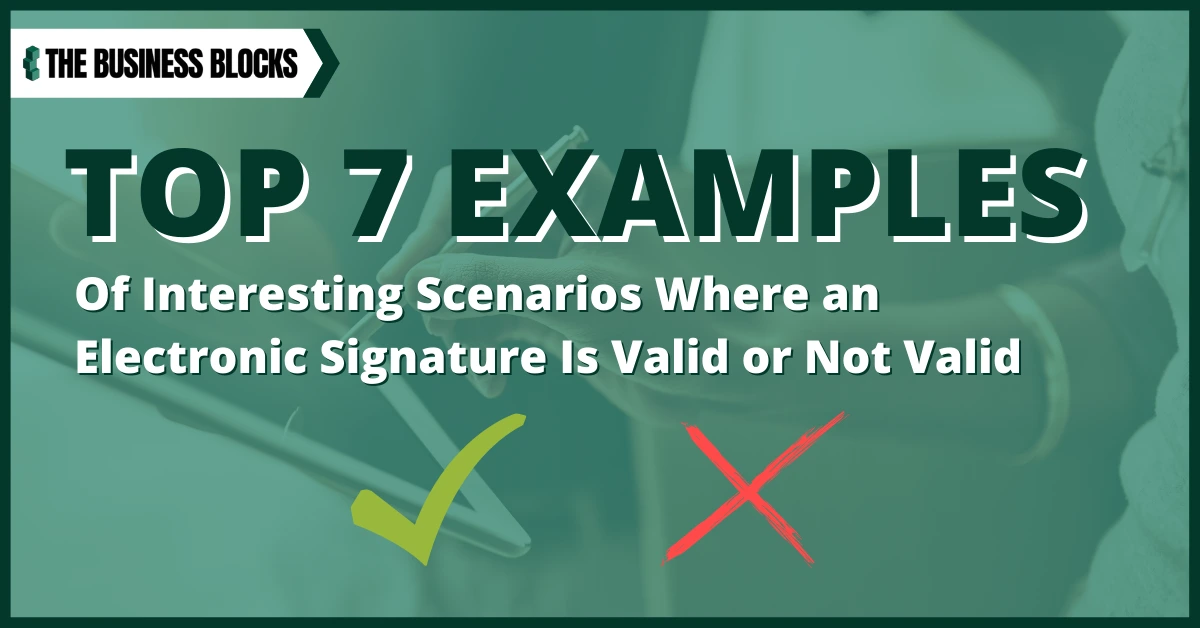The validity of electronic signatures is enforceable as long as specific requirements are met.
But even though you have signed up for a digital signature service, there might be questions regarding validity in particular situations you would want to know. Your provider’s lawyers can provide the answers to your questions, so refer to them if possible.
There are various scenarios where the legality of this practice is put under question. We have picked some interesting ones, hoping that they will resonate with you and the questions you have in mind.
Again, you can refer to your provider’s lawyers to check if they agree or disagree with our analysis here. Perhaps, you’re still not convinced that digital signatures are safe to use. That’s ok if you are, then you can check out our picks for the best e-signature platforms here.
So, let’s jump in.
Please Note: The contents of this article do not constitute legal advice, are not intended to be a substitute for legal advice and should not be relied upon as such. You should seek legal advice or other professional advice in relation to any particular matters you or your organisation may have.
Case#1 (Invalid) – Buyer Cannot Decrypt the Public Key
Firm A signed an agreement to sell time for a property using their private key. The buyer (Firm B) received the document and Firm A’s public key together with it. However, the public key the buyer received could not decrypt the digital signature of Firm A.
Firm A asked: What went wrong?
Firm A looked into the matter and discovered that the document was tampered with after it was signed. The tampering during transmission made the document invalid, as well as the signature affixed on it.
Another reason for the inability to decrypt a public key is that the sender does not own the affixed signature. That is a ground for declaring a signature to be invalid.
Digital signature services ought to protect the integrity of their clients’ signatures, which is a requirement by the Public Key Infrastructure (PKI).
PKI is a system used to verify digital signatures on electronic documents, and it requires that keys be created and saved securely.
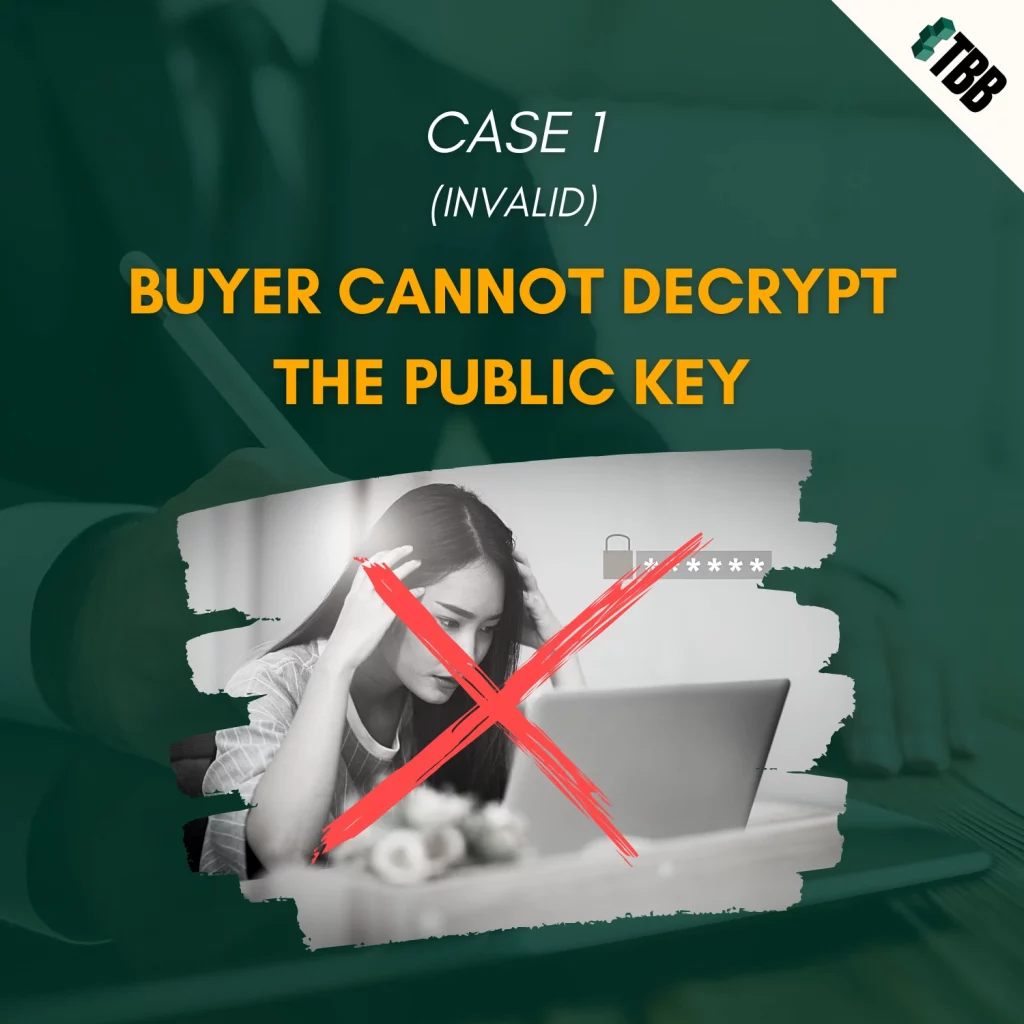
Case#2 (valid but…) Company did not comply with two pillars of the legality of digital signatures.
The product buyer was notified that she could get a subscription of magazines for free and said she would like that. She proceeded to sign off using her digital signature on the pad provided.
After a few months of receiving several editions, the company renewed her subscription and automatically charged her credit card for that.
She filed a case in court and won it. The court decision stated that the subscriber was not shown the disclosure and that the signature was shown separately from the disclosure.
Bottom line: The subscriber’s signature was valid, but it could not be connected with the content to be signed. The magazine company failed to comply with two particular pillars of the legality of digital signatures: consent and association.
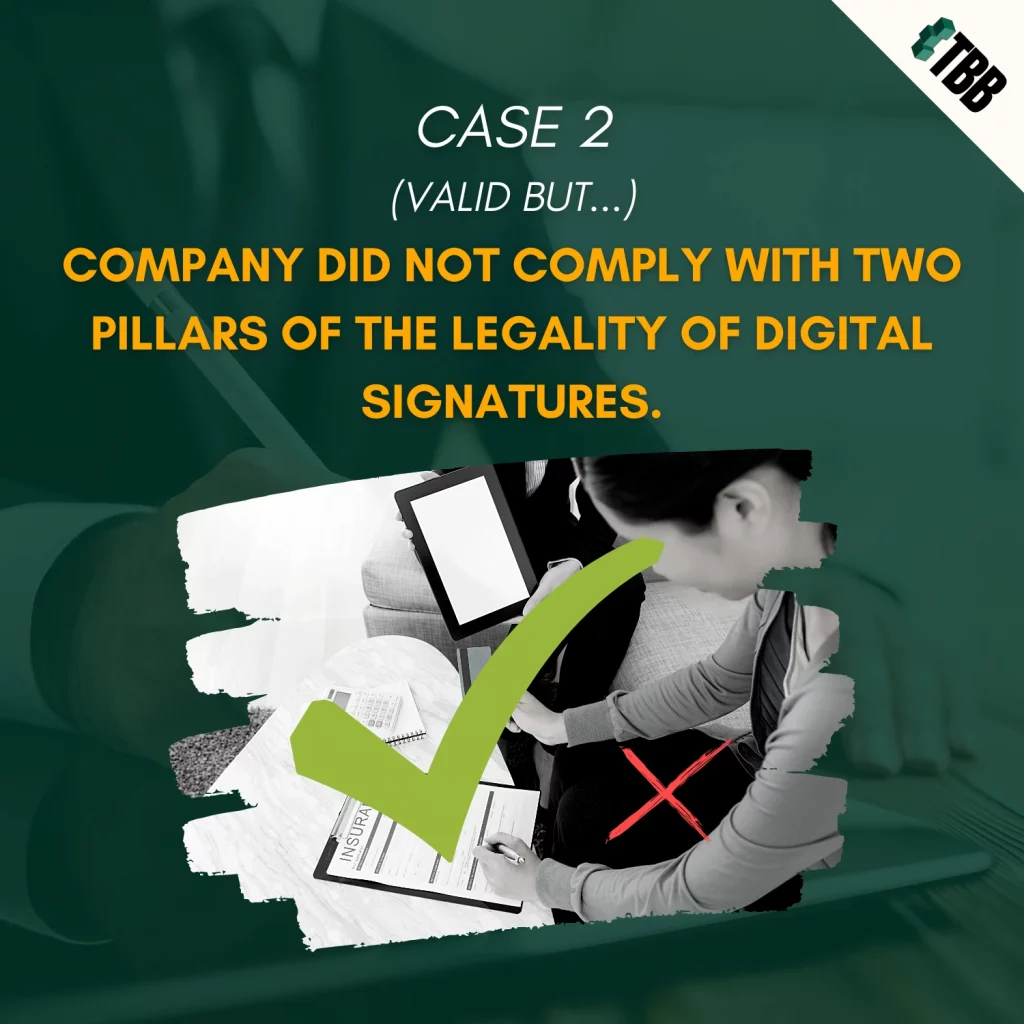
Case#3 (invalid) – Court Sanctions Bankruptcy Lawyer
A bankruptcy lawyer leverages e-signature software for bankruptcy petitions and other important matters in his cases. The court sanctioned the said lawyer stating that:
- Digital signatures do not constitute a replacement for the original signature on legal documents.
- Electronically signed documents can be admissible in court only if a copy of the document with a “wet” signature is also available.
The biggest issue was that the lawyer was not able to provide original signatures on documents. According to the court, the primary concern is that e-signatures can be manipulated or forged. Individuals filing for bankruptcy via digital channels can lie and say that they did not sign any document.
The court further argued that the system of “click to sign” is not foolproof. It does not guarantee that the person who clicks is the owner of the signature.
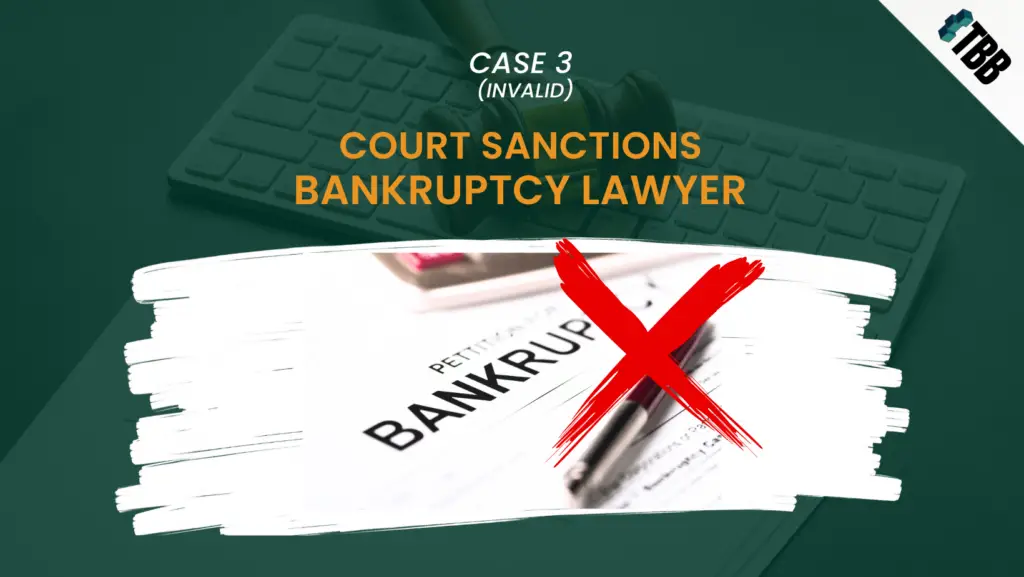
What are digital signatures?
A digital signature is a more secure form of electronic signature that can render a document legally binding. It complies with strict regulations to ensure all parties involved of the signers’ identities. Contracts often need signatures to confirm the integrity of the document. These signatures verify the identity of the signers, thus increasing the level of trust between the parties involved.
You can learn all about the specifics of what are digitals signatures and what are the differences between digital signatures and e-signatures here.
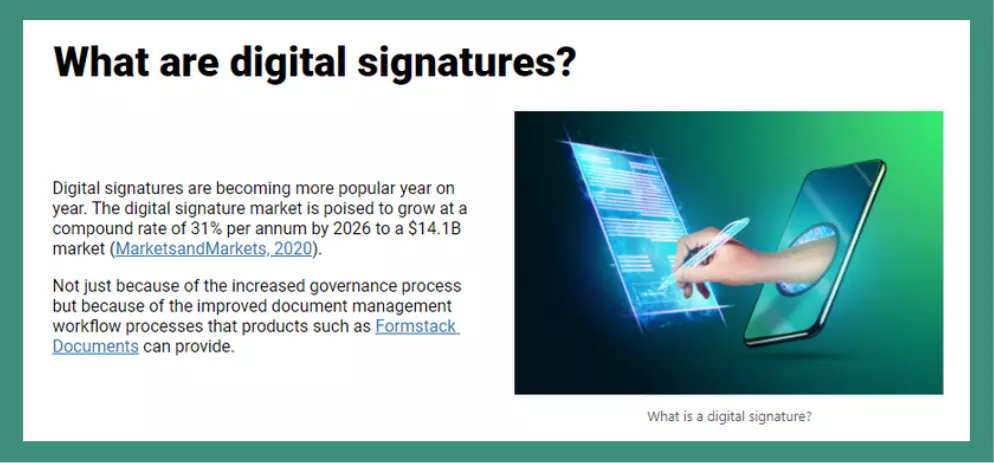
Case#4 (valid and binding) – Disclosures on a Mobile Device
In O’Connor vs. Uber (and in another case: Meyer vs. Uber), the court argued the agreement between the company and its drivers is valid. The court also said that the argument that says the document was shown on a small mobile device does not hold.
In rejecting the argument, the court reasoned that it is irrelevant whether one reads a contract as long as they have the opportunity to do so. That makes every click on the sign-with-your-digital-signature button a valid transaction.
In the Meyer case, on the other hand, the court said that reasonably prudent smartphone users would have been on conspicuous notice of the terms and conditions of service. Clicking the button means acceptance of those terms.

Case#5 (valid but…) – No Intent to Deceive
A court in Louisiana dismissed a petition to void an insurance policy because of the alleged false information entered in the insured’s application documents. The insurer argued that the contract was void because the insured made misrepresentations.
The court disagreed and reasoned that it was the petitioner’s fault that they made the defendant affix his digital signature without reviewing his application before signing.
The court added that the burden of proof lies on the shoulders of the petitioner. They needed to provide evidence that the defendant was aware of the false information in the application before he was asked to sign. However, such evidence was not provided, so the court dismissed the petition.
Although this case does not directly talk about the validity of digital signatures, it is shown here that the court affirms the legality of digital signatures as having the same effect of handwritten signatures.
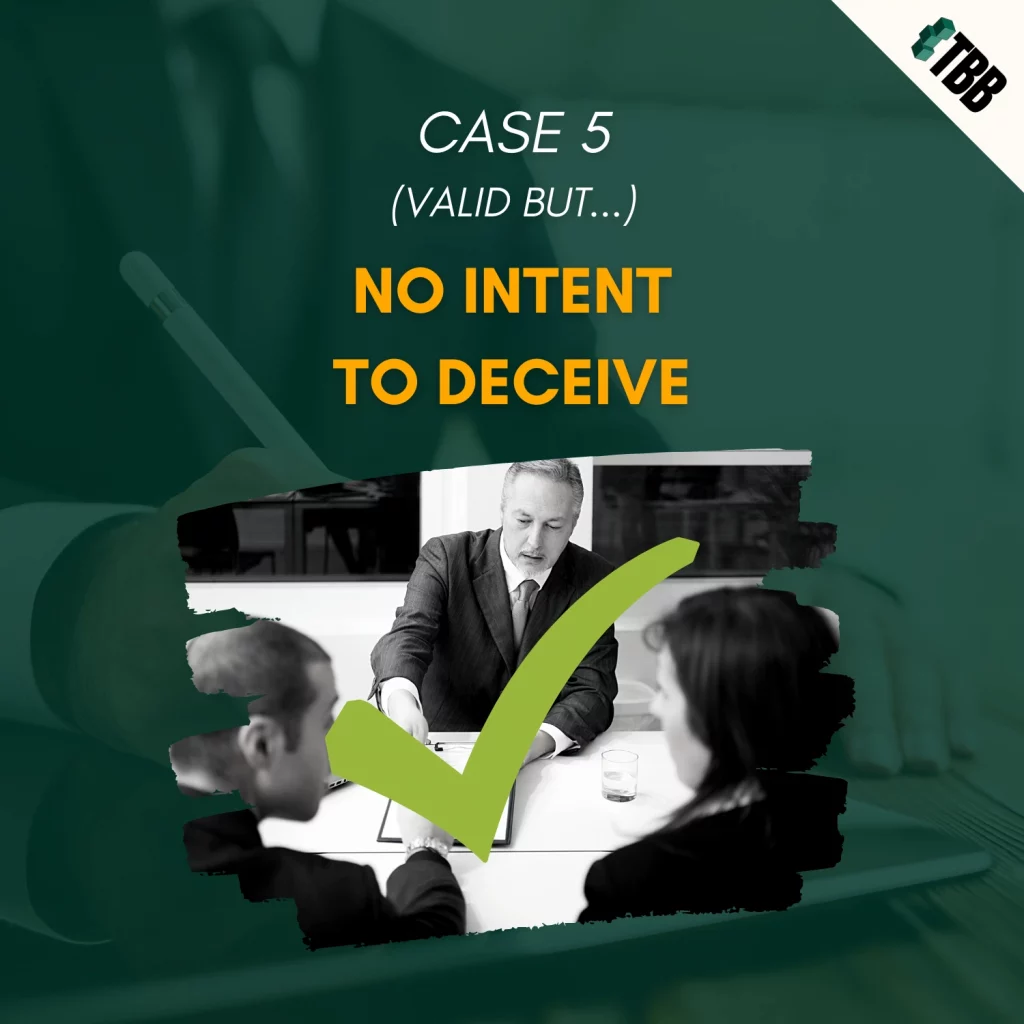
Case#6 (validity supported by law) – Arkansas UETA Ruling
Uniform Electronic Transactions Act enables the replacement of paper requirements with electronic records and signatures.
An Arkansas case involved an insurance applicant who made his application over the internet. The terms included the stipulation that an applicant should
waive coverage of medical benefits. The applicant agreed by signing electronically.
Later, the applicant filed a suit when the insured car got into an accident while driving it. He argued that the insurance provider should cover his medical bills and referred to the law that says medical coverage can be waived only in writing. But UETA was already a law in Arkansas before the applicant applied for a policy.
According to the law, writing means anything written, whether it is on a screen or paper.
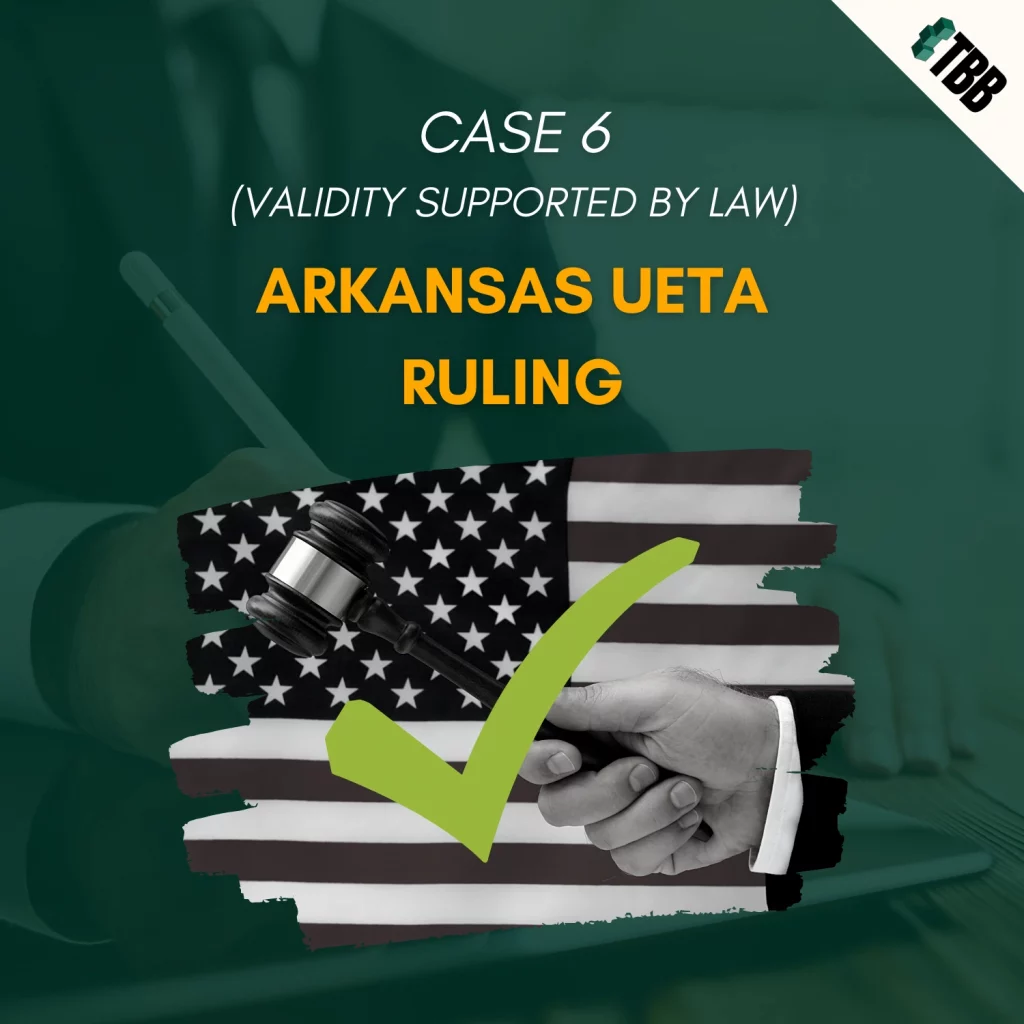
Case#7 (validity still under legal scrutiny) – An Expert Witness’s Quandary
In a legal case reported in June 2015, it was shown that the digital signature process is crucial in proving the legality of such signatures.
In this case, the plaintiff argued that she did not sign any documents and that she was not presented with the documents that the defendant alleged.
What does this exactly mean?
It means that the defendant needs to show the process. Specifically, the defendant must show the process that was used to:
- Identify the signer (the plaintiff)
- Identify the steps required to accomplish documentation (including what transpired during the signing of the document)
These details are very important because software can be changed substantially and quickly. Law experts argue that software digital signing processes must be put under strict scrutiny.

Have you decided on a digital signature service yet? Find out more about the benefits, legality, and how digital signatures have been rewarding for particular businesses. If you have any more questions, click here.
Featured Platforms: PandaDoc, Formstack Sign, DocuSign, HelloSign

